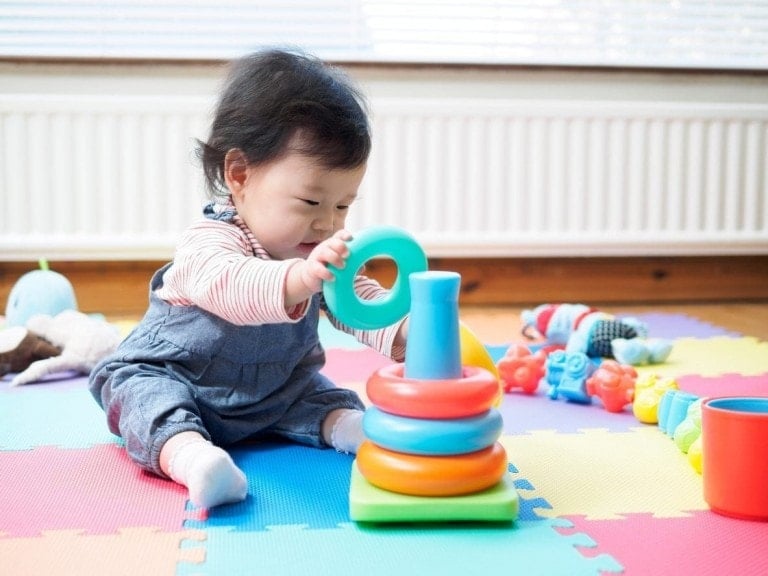“But I want it . . . now!” Nearly all of us will have a moment as a parent when our child is entitled, spoiled, or just plain ungrateful. They forget to say “please” and “thank you,” or after receiving a special treat or surprise, they demand something else or don’t show appreciation for what they received. We all know that our children go through a “me, mine, now” development phase.1
While we understand it’s normal, parents don’t want to raise ungrateful, entitled children, either. Having grateful and respectful children is more than simply teaching them to be polite. It’s about developing a mindset or way of seeing themselves and their position in the world, but also understanding and considering other people’s needs.2 If you have noticed that, at times, your child has a sense of entitlement, there are ways to support them so they learn to be more grateful and empathetic.
What Are Some Signs of Entitlement?
The definition of an entitled child is believing they inherently deserve special treatment or certain privileges or are exempt from usual social expectations.3 Despite having six types of the coolest action figures, they whine, complain, or demand the seventh one because it’s “just not fair” they don’t have it. Some key signs of entitlement can include:3
- Lack of accountability: This is blaming other people for their own mistakes or flaws. “I got bad grades because my teacher hates me.”
- Instant gratification: Expecting to receive what they want immediately.
- Belief in their rights: Everybody has rights, including children. It’s not about basic human rights, though. It’s about expecting that they deserve things for doing nothing or that their rights supersede others. “I deserve to have all the Halloween candy and don’t want to share it with any of the other kids. It’s mine.”
- Difficulty dealing with frustration: They can’t handle feelings that come up when things don’t go their way, or they don’t get what they want.
What Causes Entitlement?
The research isn’t clear on precisely what causes entitlement. But literature points to things like:4,5
- The environment a person grows up in
- How someone is raised or treated by their parents or other figures of authority (being a peer and not a parent, having limited rules or boundaries, bribery, not saying no, etc.)
- Whether adults solved problems for them (which creates a lack of responsibility or accountability)
- Life events or circumstances that make them feel special
- Certain mental health conditions, such as narcissistic personality disorder (please note that children who are entitled aren’t necessarily narcissistic but share similar traits, and people with narcissism show a sense of entitlement, among other symptoms)
- Media that encourages materialism, commercialism, and individualism
All these things can influence how someone sees the world and, in turn, what they expect from other people. If someone is raised to believe that others will fix problems for them or that they don’t need to think about other people’s needs (their own needs are more important or valuable), this can result in a child becoming entitled.
Strategies To Address and Avoid Entitled Behavior
If you have noticed any entitled behaviors in your child, it’s not too late to instill a sense of responsibility or accountability and change their attitude. There are many ways you can learn how to “unspoil” a baby or child, including:
Giving Them Chores
I don’t mean activities that earn them money. I am referring to actions or behaviors that contribute to the house’s running — picking up after themselves, helping prepare dinner or setting the table, bringing their dirty clothes to the washing machine, etc. Children who do chores (even from the age of 3) tend to feel a higher sense of self-esteem, are more responsible and accountable, can delay gratification better, and are better able to manage big feelings like frustration.6
Helping Them Manage Their Emotions
A key element of entitlement is being unable to deal with frustration or when things don’t go their way. And a solution to this is being able to manage big emotions. This means helping them name their emotions and develop strategies to calm or settle themselves.7
Increasing Their Resilience
This is a person’s ability to bounce back after a setback or deal with disappointment. You can increase resilience by teaching them to set goals, focusing on the steps they take to complete activities, and concentrating on their attitude or values rather than the outcome. For example, telling them, “You tried hard and didn’t give up,” versus “It’s so good you won that race.” 7
Not Doing Everything for Them
Another way we increase resilience is by letting our kids deal with some stuff without our interference. Okay, it’s hard to see our kids fail or be upset, but we are taking away essential life skills and self-esteem when we rush to fix things or don’t allow them to learn how to problem-solve for themselves.
Teaching Them To Have a Gratitude Attitude
If we focus on teaching our children to be grateful, it’s a wonderful antidote for entitlement. They learn to be grateful for what they have and not get caught up in everything they want. You can have a daily gratitude prompt at dinner every night, say “please” and “thank you,” or model sharing what you are grateful for or other gratitude exercises and activities. Make sure it’s for little, everyday things and big, special things.8
Expanding Their Circle of Concern
Make sure that, as a family, you are aware of others around you. You don’t necessarily have to donate money or even your time. There are many great ways to get your child thinking about other people, like reading books or watching certain TV shows and documentaries to expose them to different ways of living, donating old/unused items, and sending cards to family or friends who aren’t well.
It is normal for children to be self-involved and demanding, acting as if the world revolves around them. We expect these behaviors to reduce over time and as they age. Or we try strategies to increase their resilience, accountability, and empathy. Mostly, parents are just trying to help their children or don’t want them to suffer or be distressed. Remember that failing and being challenged are life events that help your child develop essential skills.



































